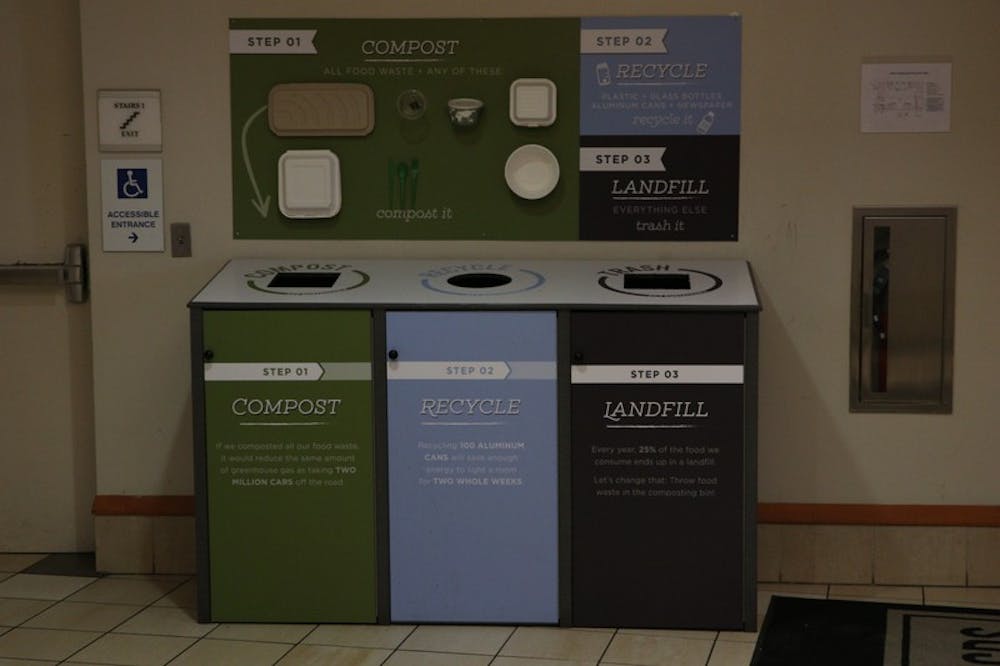Marking the first anniversary of Chancellor Carol Folt’s Three Zeros Environmental Initiative, sustainability at UNC has flourished through efforts to refocus goals of net zero waste to landfills, zero greenhouse gas emissions and zero water usage.
Waste
Anna Wu, the associate vice chancellor for facilities services, said the University has been working hard to increase recycling on campus by adding new single-stream recycling bins to the Environment, Health and Safety Building, McColl Building and McCorkle Place.
“You’ll see a recycling — a single-stream recycling — next to a trash receptacle, so always compare so that you can make the right choice about either recycling or having things go to trash,” Wu said.
Brittany Cook, the marketing director for Carolina Dining Services, said CDS is working to reach the goal of zero net waste by adding compostable silverware to Bottom of Lenoir Hall, McColl Cafe and the Beach Cafe.
Cook said the compostable silverware costs almost double the amount of the plastic silverware, but it was important to make the switch to decrease contamination.
“Last year what was happening was that the silverware was plastic but the boxes were compostable," she said. "At the end of your meal if you put your silverware in your box and then you just tossed that in the compost it was contaminating the compost."
Cook said CDS has partnered with their beverage provider, PepsiCo, to source a compostable cup that has been adopted at McColl Cafe and Bottom of Lenoir.
“That’ll be a huge win for being able to hopefully tremendously reduce our waste – these just had to go in the trash, and now everything can be composted,” she said.




